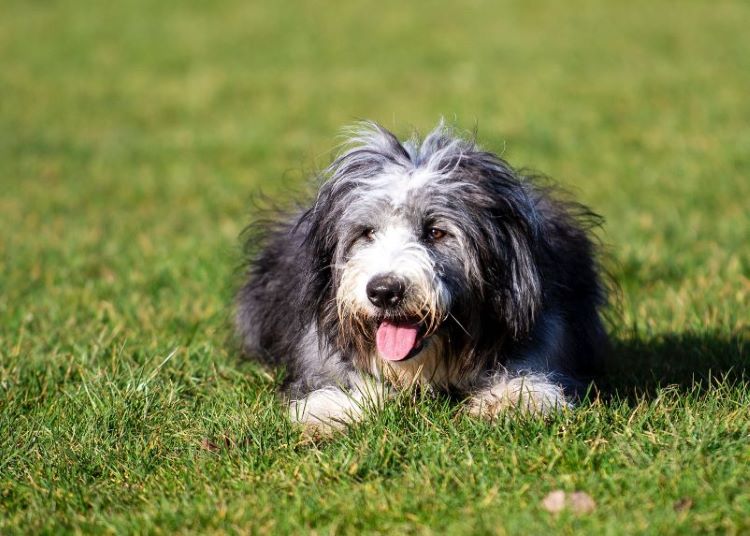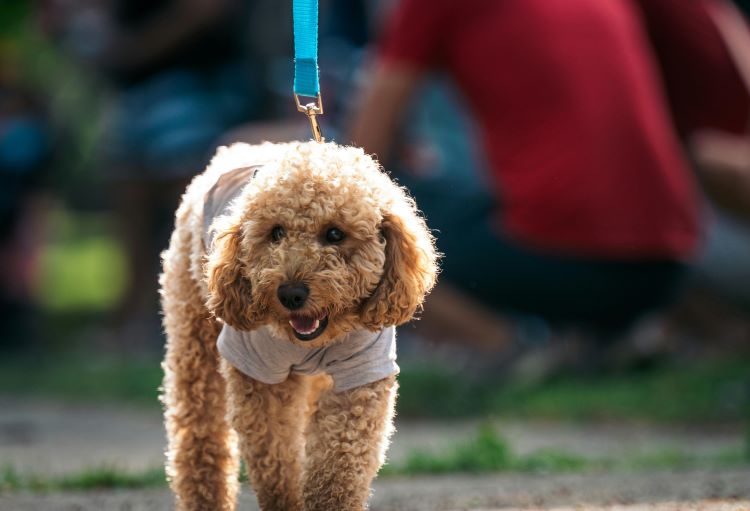Ready to help treat your pet to a healthy life?
Can Dogs Get Skin Cancer? How to Protect Your Pal
By : Brianna Gunter | Published Jul 1, 2025

Skin cancer is often seen as a less-threatening cancer in humans — although it can be serious indeed, it is often caught and treated earlier thanks to its visibility. But what about when it comes to pets whose skin is covered in fur? Can dogs get skin cancer? Sadly, yes. We may not think about our pups as being at risk due to their skin being covered in fur. But, like other mammals, dogs are susceptible to many different kinds of cancer, and that does include skin cancer.
While the concept of skin cancer — or any serious disease — affecting your dog is understandably scary to think about, the good news is that you’re not powerless when it comes to their health. There are things you can do to both lessen your dog’s risk of skin cancer and help treat it early if it does happen.
How do dogs get skin cancer?
Skin cancer in dogs has the same causes of skin cancer in humans: genetic mutations, exposure to carcinogens, a weakened immune system, chronic damage to the skin (burns, inflammation, wounds), and most commonly, exposure to ultraviolet (UV) rays primarily from the sun. There may be other lesser-known causes, but these are the main ones.
Also like humans, dogs tend to develop skin cancer in areas that are more frequently exposed. While this can vary based on the type of dog you have and their fur length (more on this further down), canine skin cancers are commonly found on the nose and ears. For pups that may enjoy laying in the sun with their bellies up, the belly can also be an unsurprising area to find cancer spots.
Diagnosis and treatment
Common types of skin cancer in dogs include malignant melanoma, squamous cell carcinoma, and mast cell tumors. These may appear as lumps, sores or lesions that don’t seem to heal, or visual changes in existing moles. Of course, proper diagnosis is needed to confirm the presence of cancer. Usually, this is done via a combination of physical examination and diagnostic tests. Your veterinarian will first inspect any suspicious lumps, sores, or skin changes. Fine needle aspiration or a biopsy is then typically performed to collect a tissue sample, which is then examined under a microscope to determine if cancer cells are present. Additional tests, such as X-rays, ultrasound, or blood work, may likewise be used to check if the cancer has spread to other parts of your pet’s body.
Treatment varies from case to case and usually consists of removing the affected skin and surrounding tissue. More extensive treatment, including chemotherapy, may be recommended if the cancer has spread. Regardless, early and accurate diagnosis are crucial for the best outcomes. It is possible for dogs to make a full recovery from skin cancer, but it’s vital not to wait if you notice any suspicious skin changes. Regular vet visits and prompt attention to new skin abnormalities help catch cancer as early as possible, so don’t wait to schedule an appointment!
Is your dog at higher risk of developing skin cancer?
Like skin cancer risks in humans, some dogs just happen to be more likely to develop skin cancer thanks to lifestyle factors and genetics. Common risk factors for canine skin cancer include:
- Excessive sun exposure — Live in a sunny area? Your dog could be at higher risk, especially if they’re light-colored or have a thin coat.
- Light skin or fur — Breeds with pale skin or white fur (e.g., Bull Terriers, Dalmatians) are more vulnerable.
- Short or sparse hair — Hairless dogs are at particularly high risk, as their lack of coat allows more UV rays to reach the skin.
- Age — As with most forms of cancer, older dogs are more at risk in general.
- Exposure to carcinogens — Frequently being around things like pesticides or tobacco smoke can increase dog skin cancer risks.
- Weakened immune system — Dogs with weakened immunity from illness or immunosuppressive medications are more likely to develop cancer.
- Chronic skin irritation or wounds — Dogs suffering from frequent skin issues or injuries may be at higher risk of abnormal cell growth in the affected areas.
- Genetics — Certain dog breeds are more predisposed, albeit largely due to light-colored coats and/or sparser fur.
Don’t be alarmed — none of this means your dog will definitely get skin cancer even if they are at higher risk. Instead, it’s just all the more reason to stay vigilant in practicing prevention and moving quickly to get medical treatment if you do notice something is up.

8 tips to protect dogs against skin cancer
As with all forms of cancer, there’s no guaranteed way to prevent skin cancer from developing. That said, there are a lot of things you can do to considerably reduce your dog’s risk. Here are eight tips all responsible dog owners should follow to lessen their pup’s chances of developing skin cancer and promote their health:
- Limit sun exposure, especially during peak hours (10 a.m. to 4 p.m.).
- Provide shade when pets are outdoors — provide options with umbrellas, trees, or dog tents.
- Use dog-safe sunscreen on vulnerable areas like the nose, ears, and belly (avoid human sunscreen).
- Avoid shaving double-coated breeds, as their fur helps provide natural UV protection.
- Dress your dog in protective clothing like UV-blocking shirts if outdoors often.
- Keep dogs indoors on very sunny days, especially light-skinned or thin-coated breeds.
- Regularly check your dog’s skin for unusual lumps, sores, or changes.
- Schedule routine vet checkups for early detection and prevention.
For more tips specific to your dog, talk with your veterinarian about their risks.
Does pet insurance cover skin cancer in dogs?
Treatment for canine skin cancer (and other serious conditions) has come a long way, and there are now more options than ever for your pet. While this can be reassuring for many pet parents, the cost of care can quickly get in the way. Fortunately, having a good pet insurance policy can be a big help if your dog is diagnosed with skin cancer. As long as the condition isn’t pre-existing, Trupanion can help cover diagnostics, treatments, surgeries, and medications related to skin cancer conditions, without payout limits. That means you can focus on getting your pup the best care without worrying about how to handle the entire cost yourself.
Learn more about protecting your dog’s health and how to choose the best pet insurance coverage.
